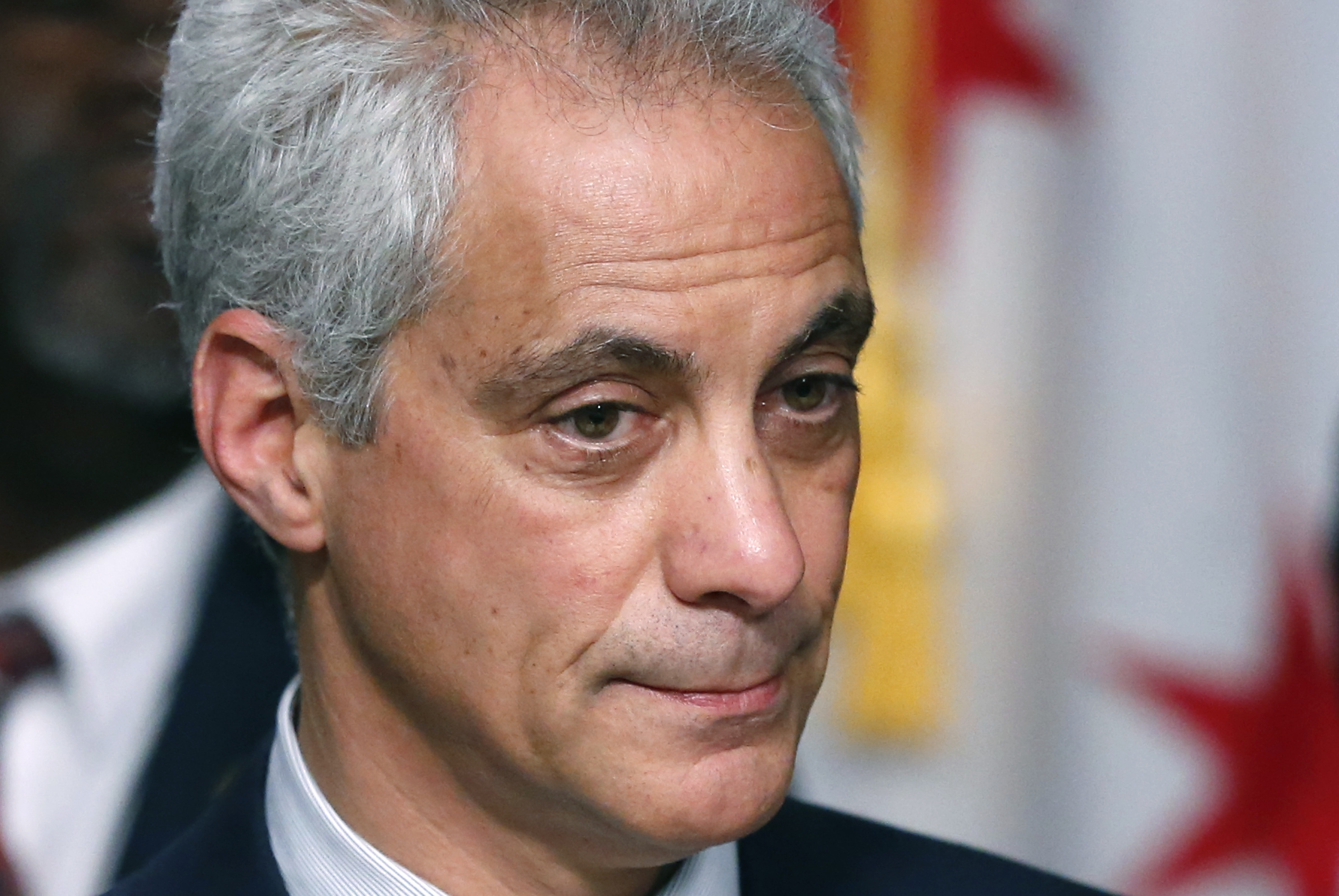The windy city’s political donor class is disproportionately and overwhelmingly made up of rich white men with a penchant for austerity and budget cuts, according to the first-ever municipal-level study of race, class and gender disparities in buying elections.
Sean McElwee of the public policy organization Demos found that, during the 2015 mayoral race, candidates received “more than 92% of their funds from donors giving $1,000 or more.” A stunning 88 percent of these big donors were white, in a city where white people comprise just 39 percent of the population. It is worth noting that big donors to the widely reviled Rahm Emanuel skewed white, at 94 percent. This compares with 61 percent for his unsuccessful rival Chuy García.
Not shockingly, big donors are far richer than the average city resident. “Though only 15% of Chicagoans make more than $100,000, 63% of donors did and 74% of those giving more than $1,000 did,” McElwee notes.
These disparities extend far beyond the mayoral race. “Only five overwhelmingly white wards accounted for 13 percent of Chicago’s population,” the study finds, “but 42 percent of donors to the Chicago mayoral and aldermanic races.”
Here, however, is the real catch. Surveys show that the political goals of wealthy Chicago residents diverge dramatically from those of the broader population. The 2012 Chicago-based Survey of Economically Successful Americans found that the city’s wealthy residents, two-thirds of whom are political donors, were far less likely to support a higher minimum wage or “decent standard of living for the unemployed.” They were also far less likely to agree with the statements that the federal government “should spend whatever is necessary to ensure that all children have really good public schools they could go to” and make sure “everyone who wants to go to college can do so.”
Meanwhile, separate data from the Cooperative Congressional Election Studies shows that Chicago’s donors are far more likely than their non-donating counterparts to back national austerity measures to reduce the debt.
“The current path Chicago is following, with cuts to mental health services, infrastructure and public schools, is responsive to the preferences of the donor class, not average Chicagoans,” writes McElwee. “Chicago has closed 49 schools, predominantly in black neighborhoods. In addition, the city has closed six of the city’s 12 mental health clinics, which was supposed to pull in $2.2 million in savings, though the city then paid $500,000 to private facilities in order to meet demand. A recent wave of spending cuts hit Chicago State University, the only state college that predominantly serves black students, particularly hard.”
These findings are relavent in the context of the 2016 presidential race. According to a recent study from the Washington Post, nearly half of the money raised for super PACs by the end of February came from “just 50 mega-donors and their relatives.” A separate study released by the New York Times last year found that only 158 families “provided nearly half of the early money for efforts to capture the White House.” These families are “overwhelmingly white, rich, older and male,” the probe notes.
[This article first appeared on Alternet]


